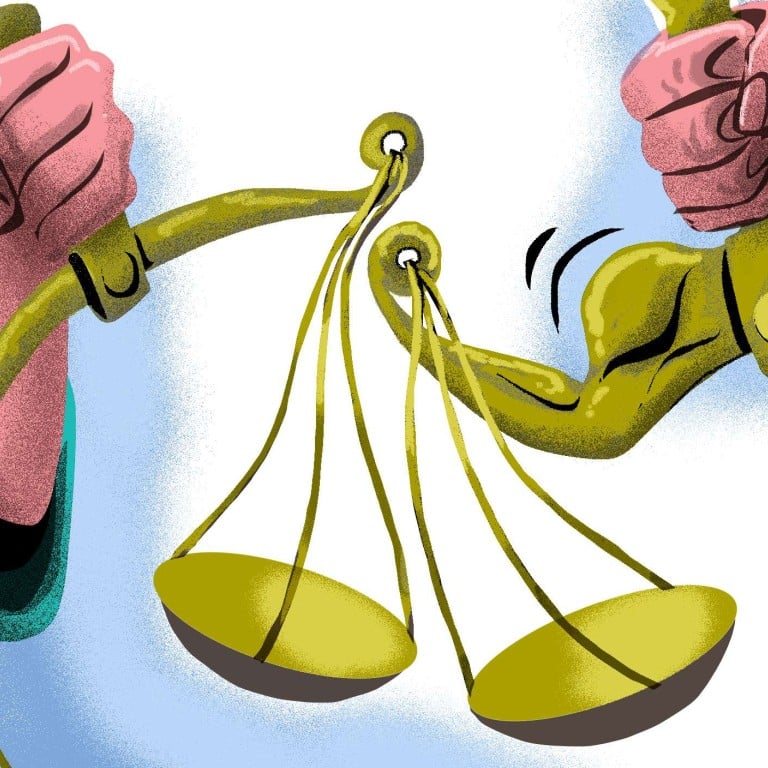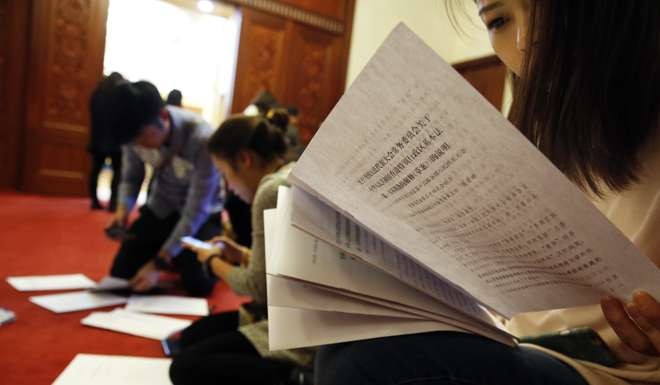
NPC interpretation adds nothing new to Hong Kong law, and is wholly unnecessary
Ronny Tong expects no material change to our legal system as a result, but believes the move compromises the integrity of our judicial process – and that’s the real problem

Hong Kong will pay a heavy price for yet another Basic Law interpretation

Subject to interpretation: charting the history of Hong Kong’s Basic Law
Is anyone seriously suggesting insincere oaths are acceptable?
Secondly, the interpretation said the candidate must comply with the legal requirement “in respect of its form and content” and “sincerely and solemnly, and “accurately, completely ... read out the oath prescribed by law”. That, in fact, is almost exactly what Mr Justice Michael Hartmann said in a 2004 ruling concerning the taking of oaths for legislators. The learned judge did not invent these terms. They were spelt out in section 16 of the Oaths and Declarations Ordinance.
The statute did not expressly say the oath must be taken sincerely and solemnly but is there any other way? Is anyone seriously suggesting insincere oaths are acceptable? Indeed, if you look up the word “oath” in the Webster dictionary, it will tell you that an oath means “a solemn, usually formal, calling upon God or a god to witness to the truth of what one says or to witness that one sincerely intends to do what one says”. Need one say more?
Thirdly, the interpretation says if the oath were not taken sincerely or solemnly, then the person in question must be taken as having declined to take the oath and he or she was to be disqualified from taking office forthwith. Well, that is what section 21 of the Oaths and Declarations Ordinance says, too.

This is what happens when you breach the Basic Law
Fourthly, the interpretation says the oath must be taken before someone authorised to administer the oath, who must determine if the oath was in compliance with the requirements of the law. That is what sections 19 and 21 of the Oaths and Declarations Ordinance say and, indeed, relates to the judicial review now pending before the court, in which the government argues that two lawmakers who had failed in their duty to take the oath should be disqualified.
The damage, coming at a time when our community is so deeply divided, cannot be belittled
The interpretation also says that no arrangement shall be made for retaking the oath. Well, section 21 does not exactly say that, but it does speak of the requirement as a duty to be performed on an occasion; one is asked to take the oath, but if one does not do it, then one is disqualified from office. I read that as meaning exactly what the interpretation is saying: no second chances.
Last, but not least, the interpretation says an oath-taker who makes a false oath or acts in breach of the oath “shall bear legal responsibility in accordance with law”. That does not add anything, does it? The interpretation is not saying there will be a new punishment for such an eventuality, just that legal consequences will follow. In fact, Article 79 of the Basic Law already says that if a legislator acted contrary to his oath, he shall be disqualified from being a legislator if there is a two-thirds majority in the council condemning such conduct. So, again, there is nothing new.
To conclude, the interpretation is not changing the law in any substantial way. Indeed, there does not appear to be anything in the text to suggest the interpretation is inconsistent with our existing law or Mr Justice Hartmann’s ruling. It is therefore hard to say that the interpretation has done any damage in real terms to our legal system.

A necessary intervention to keep separatists out of public office
That said, the interpretation was also unnecessary. What it has done is reinforce the perception that our judicial process or the integrity of our judges is not being respected. And that is the real vice of this interpretation.
Of course, if one were to compare this interpretation with the one in 1999 when the decision in the right of abode case by our Court of Final Appeal was overturned by the Standing Committee, one could say this interpretation pales into relative insignificance. That, perhaps, is what history will say in due course. But for now, the damage, coming at a time when our community is so deeply divided, cannot be belittled. Just ask those young people who got pepper-sprayed this week. You will get a very different answer.
Ronny Tong Ka-wah, SC, a former legislator, is convenor of the think tank Path of Democracy

